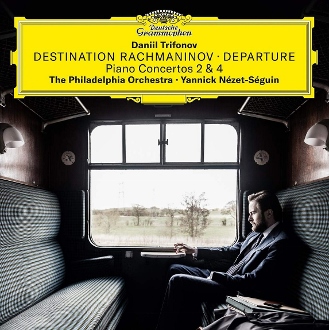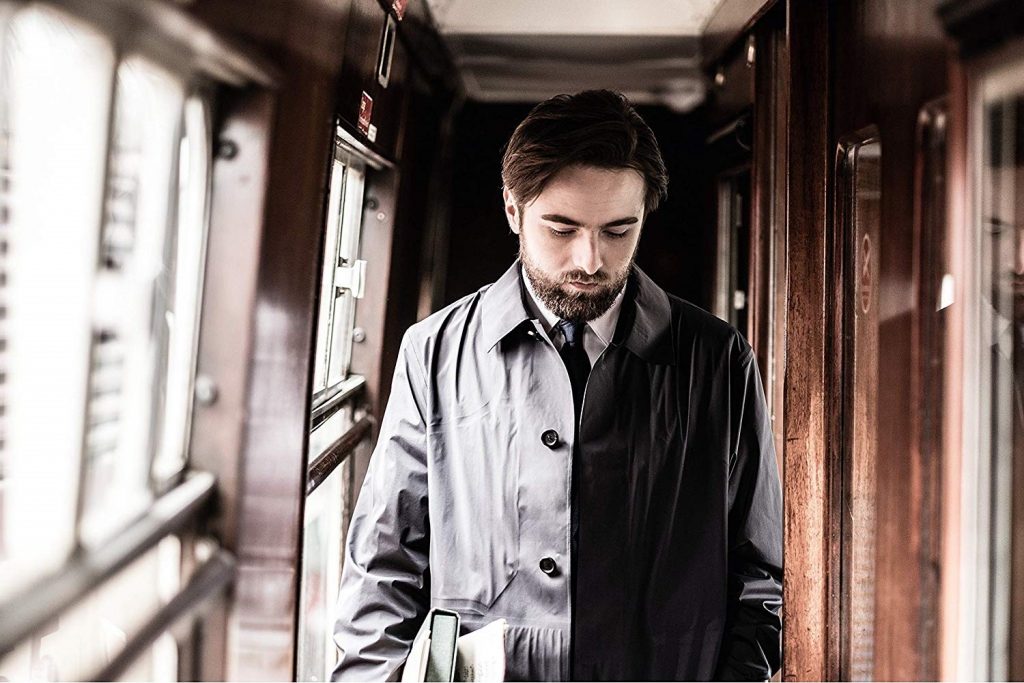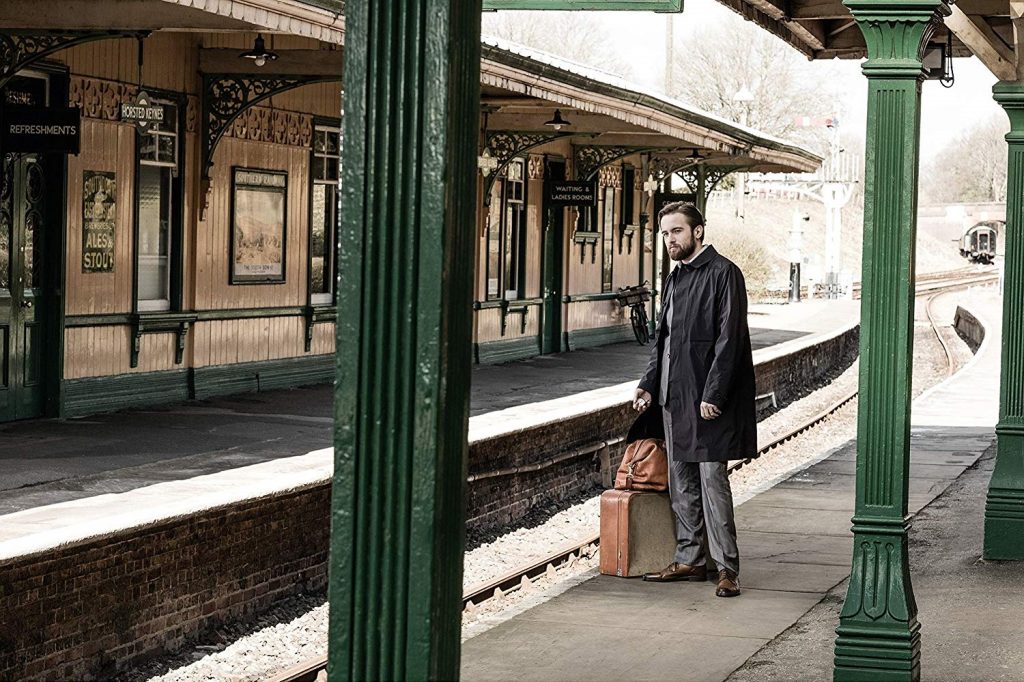TAKE THIS DEPARTURE
All it took was one live performance from Daniil Trifonov (dan-EEL TREE-fon-ov) to resoundingly validate for me why he is the current Big Thing of the piano world. The Liszt-like master’s rendition of Rachmaninov’s Piano Concerto No. 2 at the Hollywood Bowl with the Los Angeles Philharmonic (followed by a jaw-dropping encore of Stravinsky’s Firebird for piano) convinced me that this is a pianist for the ages.
And as if I needed more validation, he was equally astounding setting fire to the ivories performing Rachmaninov’s First Piano Concerto with the Chicago Symphony Orchestra. And it was the young master who kept me rapt during a recital with violinist Gidon Kremer. Then, combining flawless demonic skill with a fierce tenderness, his piano recital at Disney Hall was the greatest display of piano pyrotechnics I have ever seen.
Yet I only recently began to listen to his recordings, mostly because he is so fascinating to watch that I didn’t want to disturb my memories of this Russian firebrand. Well, to quote Bugs Bunny: “What a maroon.” From recital to orchestral to chamber, I have enjoyed every one of his albums. Back in 2015, he joined forces with the ever-wonderful Philadelphia Orchestra, conducted by Yannick Nézet-Séguin, to bring us power-packed performances of Rachmaninov’s Rhapsody on a Theme of Paganini and Rachmaniana, a short piece written as homage by Trifonov himself.
 Now, he is continuing a journey with Nézet-Séguin — who is in his seventh season as the eighth artistic leader of The Philadelphia Orchestra — to honor and emulate his hero, the great Rachmaninov. It’s proving yet again an ideal partnership. The plan to record all four piano concertos has begun with this release of Nos. 2 & 4 sandwiched around Rach’s solo piano transcriptions of three movements from Bach’s Violin Partita in E major.
Now, he is continuing a journey with Nézet-Séguin — who is in his seventh season as the eighth artistic leader of The Philadelphia Orchestra — to honor and emulate his hero, the great Rachmaninov. It’s proving yet again an ideal partnership. The plan to record all four piano concertos has begun with this release of Nos. 2 & 4 sandwiched around Rach’s solo piano transcriptions of three movements from Bach’s Violin Partita in E major.
Russian composer, pianist, and conductor Sergei Rachmaninov (1873-1943) wrote his Piano Concerto No. 4 in G minor in 1926, but it would be a couple of more years before he felt it ready for publication. While today it rather takes a backseat to the more popular Second and Third Concertos, it still exhibits its own merits. The Fourth may not be played often in concert halls, but it has had a fair share of recordings, including Argerich, Ashkenazy, Hough, Andsnes, and (my favorite even with sound issues) Michelangeli.
Well, I shouldn’t be surprised, but Trifonov’s playing is superb — full of energy, wit, charm, and warmth. Once again, I was surprised at how much I liked the Fourth, which is more sparely scored than Rach’s earlier concertos, and while there are moments that are reminiscent of the Romantic richness from earlier works, the effect here is altogether jazzier — Gershwin-like climactic moments in the outer movements especially — and propulsive in a way that resembles Prokofiev on a bullet train. The orchestration is a bit dense, I think, so if you compare this recording with the others, you’ll appreciate that you can pick out so many more voices than usual from the orchestra while finding the pianism spectacular too; it has a sweetness that doesn’t diminish the sense of energy. (Be prepared, however, that this Concerto is much less melodic than its predecessors.)
Trifonov plays up its more-lyrical side with equal agility, letting the eagerness of the moment take care of itself. It’s a kind of self-effacing performance from the pianist, one in which he fades into the music itself instead of standing out as its supreme commander. The orchestra blends into the proceedings almost subliminally. Pianist and orchestra are so at one you can hardly tell that this and the Second are concertos at all. Meaning Maestro Nézet-Séguin is with Trifonov all the way, from the most-hushed interludes to the biggest crescendos.
As for the ridiculously oft-recorded and -played Second, Trifonov’s combination of possessed frenzy and ardent lovemaking belies his unswervingly amazing technique. Each note can be easily identified, yet they cascade smoothly like a pulsating waterfall. The combination of strength and tenderness more than validate why I love Trifonov. He is as moved by the sumptuous, romanticism as we are. Sometimes, he takes his time and slowly builds up steam; other times, it was almost as if he were urging the orchestra forward. Both ways, he’s a master at bringing out the inner voices. And his surety of technique is especially acute for us in the Bach arrangements for piano solo.
I must say it’s a bit naughty to label this a “new” recording when the Fourth was recorded in 2015. I listened to it and thought I heard ambient indefinable noises (breathing? paper?), and immediately found on-line that it was recorded live — and there it is right on YouTube. I guess it must just be too cost-prohibitive to get into a studio (more and more releases are from live performances), but if Trifonov and Co. are going to preserve this as they believe it should be played, why not demand better engineering?
Anyway, this one’s a major keeper. One year from now in Oct. 2019, look for Destination Rachmaninov — Arrival, which will conclude this cycle of Rach’s Piano Concerti with Nos. 1 & 3 which will be (or already have been?) recorded with Nézet-Séguin and the Philadelphia Orchestra, the orchestra most closely associated with the composer with which Rachmaninov himself famously recorded the set of concerti over 80 years ago.
photos by Dario Acosta
Destination Rachmaninov — Departure
The Philadelphia Orchestra
Yannick Nézet-Séguin, conductor
Daniil Trifonov, piano
Deutsche Grammophon
released on October 12, 2018 | 9 tracks | 70:07
available at Amazon, iTunes, and Deutsche Grammophon



